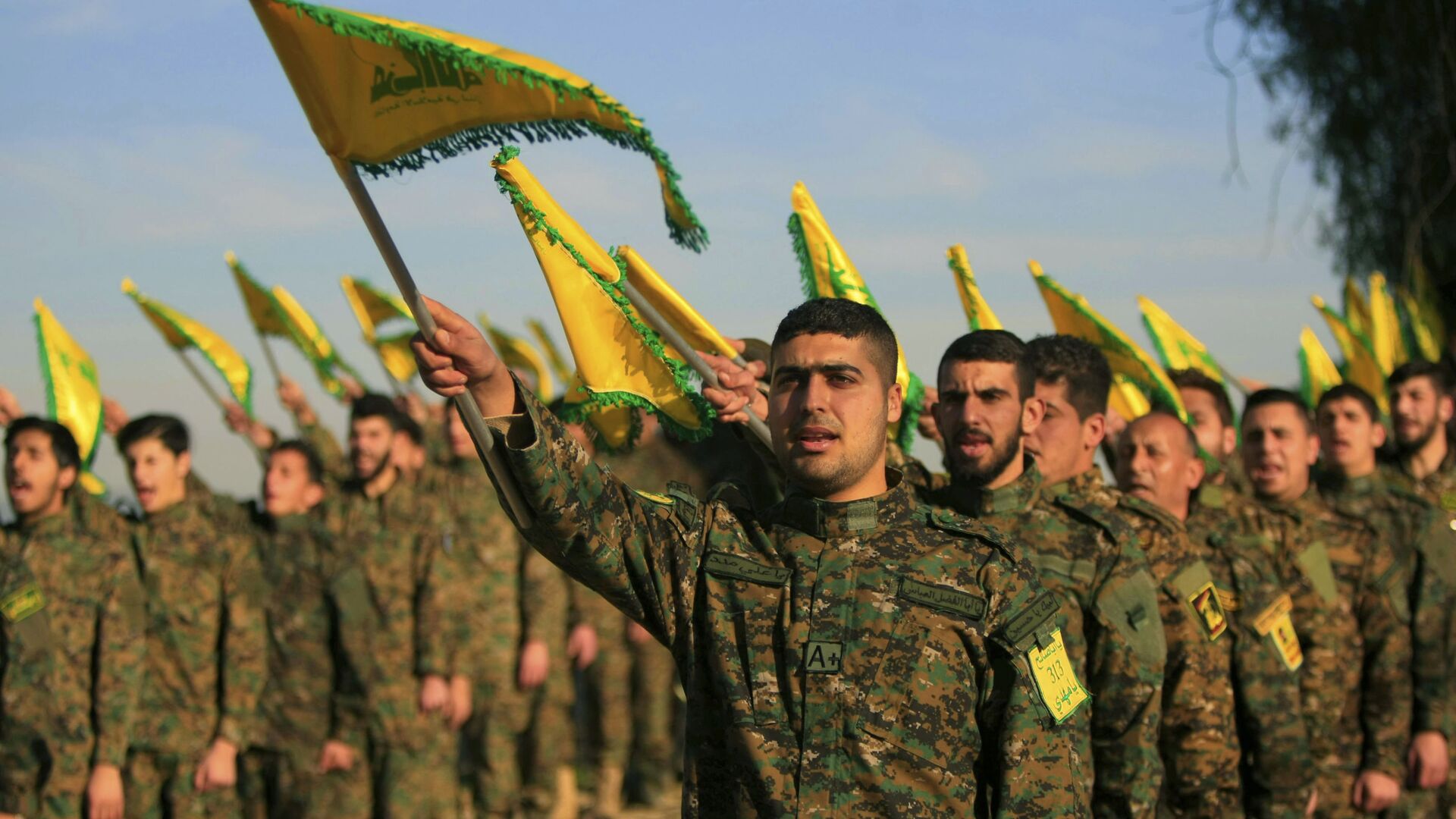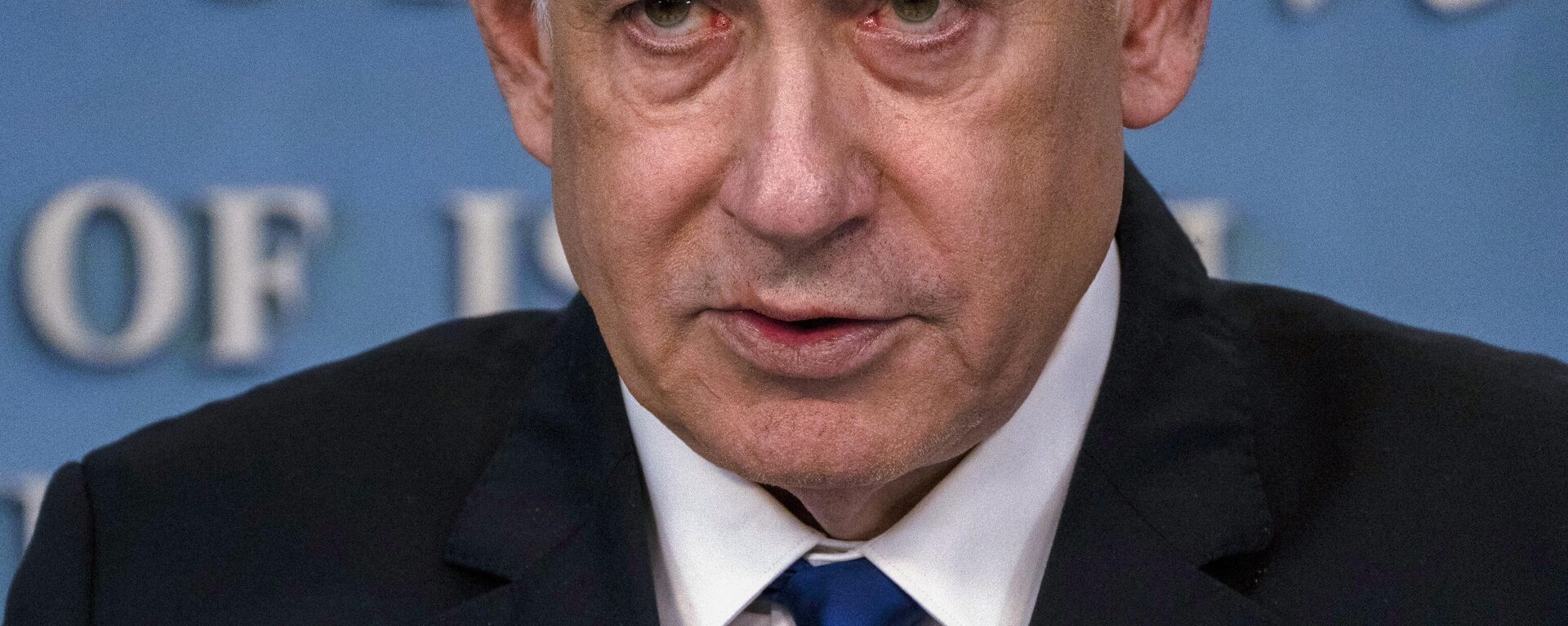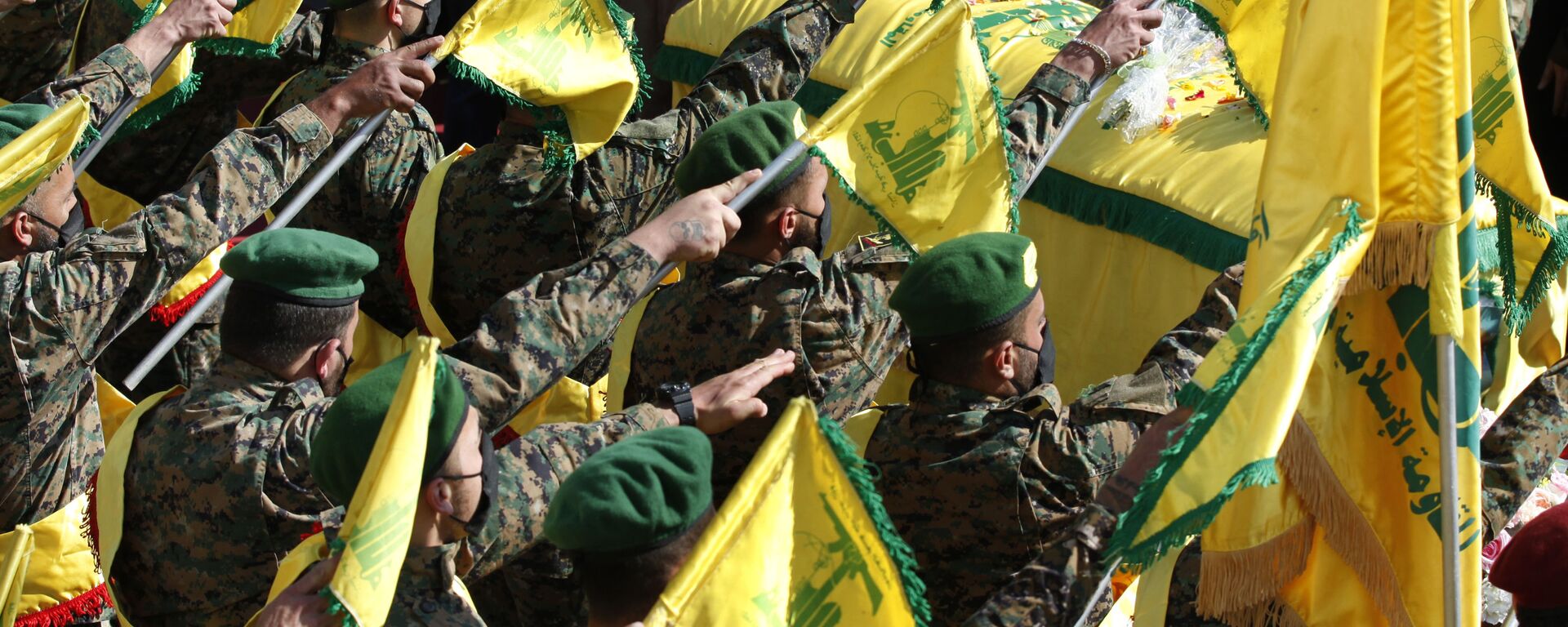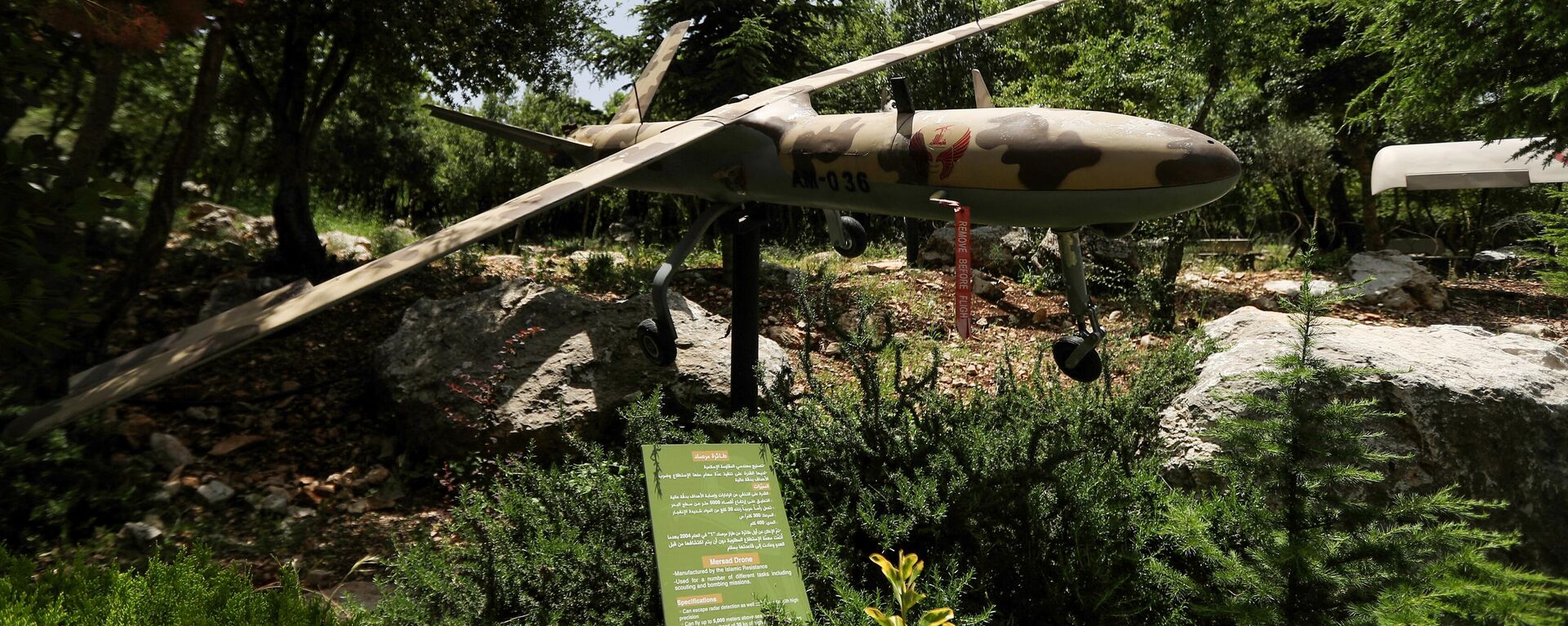Israel Can’t Win All Out War Against Lebanon’s Hezbollah: Here’s Why
19:11 GMT 08.06.2024 (Updated: 19:16 GMT 08.06.2024)

© AP Photo / Mohammed Zaatari
Subscribe
Israel’s embattled prime minister has dropped hints that he doesn’t feel he has enough on his plate with the faltering war in Gaza and protests inside his own country demanding his resignation, threatening to expand the Gaza conflict into Lebanon against Hezbollah. A leading Lebanese political observer tells Sputnik why that’s a very bad idea.
Israel is “prepared for an extremely powerful action in the north” against Hezbollah, Prime Minister Benjamin Netanyahu warned Wednesday, citing the recent dramatic escalation of cross-border skirmishes, which have included Hezbollah drone attacks inside Israel and the shootdown of a heavy Israeli drone over Lebanese airspace last week.
“Anyone who thinks that they can harm us and that we will sit on our hands is sorely mistaken,” Netanyahu warned, speaking to media in the northern Israeli city of Kiryat Shmona, which has been evacuated of most of its civilian population amid the fighting.
“Iran is trying to choke us and encircle us and we are fighting back directly and with its proxies. We can’t accept the continuation of the situation in the north, it won’t continue. We will return the residents to their homes and bring back security,” Netanyahu assured, referencing the Iran-led Axis of Resistance alliance, which includes Hezbollah in Lebanon, Syria, Iraqi Shia militias, and Yemen’s Houthi fighters.
Israeli Army Radio reported this week that the government had approved the call-up of an additional 50,000 reservists in preparation of a possible escalation with Hezbollah. US and Middle Eastern media have braced for a full-scale all-out conflict between Israel and the Lebanese militia.
But whatever superficial similarities may appear to exist between Hezbollah and Palestinian militant group Hamas, which has managed to bog down Israel’s army using a Spartan combination of rifles, man-portable anti-tank missiles and simple rockets assembled in underground garages, political and military observers the world over agree that the Lebanese group is far, far stronger.
Hardened by years of running battles against the Israeli military and with US-sponsored terrorist proxies in Syria beginning in 2012, Hezbollah, unlike Hamas, also has access to an array of sophisticated missiles and rockets, which observers in Washington estimate to number up to 200,000 – enough to overwhelm Israel’s powerful air and missile defense network.
“Israel has threatened to start a military operation on the border with Lebanon because Hezbollah has been demonstrating growing sophistication and surprising capacities, driving Israel increasingly at unease and confusion about expectations on the northern front,” Dr. Imad Salamey, an associate professor of political science and international affairs at the Lebanese American University, told Sputnik, commenting on the rising tensions between Israel and the militia.
Israel can attack many Hezbollah targets at once and cause significant damage, but cannot remove or even dramatically reduce the militia’s capabilities, “which are widespread and mobile,” the observer noted.
“If Israel aims to seriously undermine Hezbollah, it would involve many years of operations to destroy infrastructure and weapons, push fighters out of the south, and cut off supply routes from Syria. Israel will not be able to achieve this fully,” Salamey stressed.
On top of that, the academic warned that “the threat of spillover is quite high, potentially implicating much of the Quds Brigade in Syria and Iraq, resulting in Israel fighting on multiple and wide fronts.”
That’s not the outcome Tel Aviv would hope for, according to Salamey, with Israeli officials and military leaders typically looking “for a quick military achievement with ambitious goals,” which, if that fails, prompts the IDF to resort to “collective punishment targeting civilians, which is the most likely scenario in this case.”
“The potential conflict will result in major losses on both sides without a decisive victory. However, Iran will likely emerge as a major winner, asserting its regional role in any future political settlements,” Dr. Salamey believes.
Hezbollah and Israel fought their last major war in July-August 2006, during which the IDF leveled much of Beirut’s infrastructure and caused up to $5 billion in direct war damage and lost output and income. Hezbollah emerged largely unscathed, however, with about 1,000 of its fighters facing off against between 10,000-30,000 Israeli troops in southern Lebanon, losing about 250 men while killing 121 Israeli servicemen and injuring over 1,200 others.
That conflict has been described even by Western mainstream observers as a loss for Israel, with Israel’s armed forces said to have been given a “bloody nose” and suffering reputational costs which Tel Aviv has proven unable to recover from to this day.




